A 12 year-old from Thane takes his Rubik’s cube solver to a fair, that for the first time in India, celebrates innovation and entrepreneurship across craft, engineering and science. Top highlights of Maker Mela
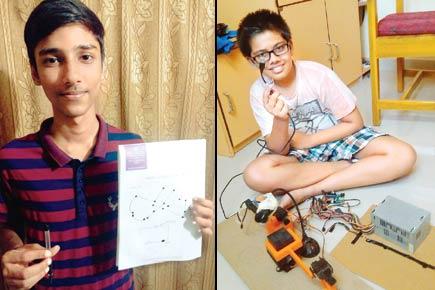
While PM Narendra Modi lures foreign investment in home-grown manufacturing, the organisers of an event that kicks off this week are also keen to exploit and showcase the innovative streak that Indian entrepreneurs and engineering enthusiasts possess.
ADVERTISEMENT
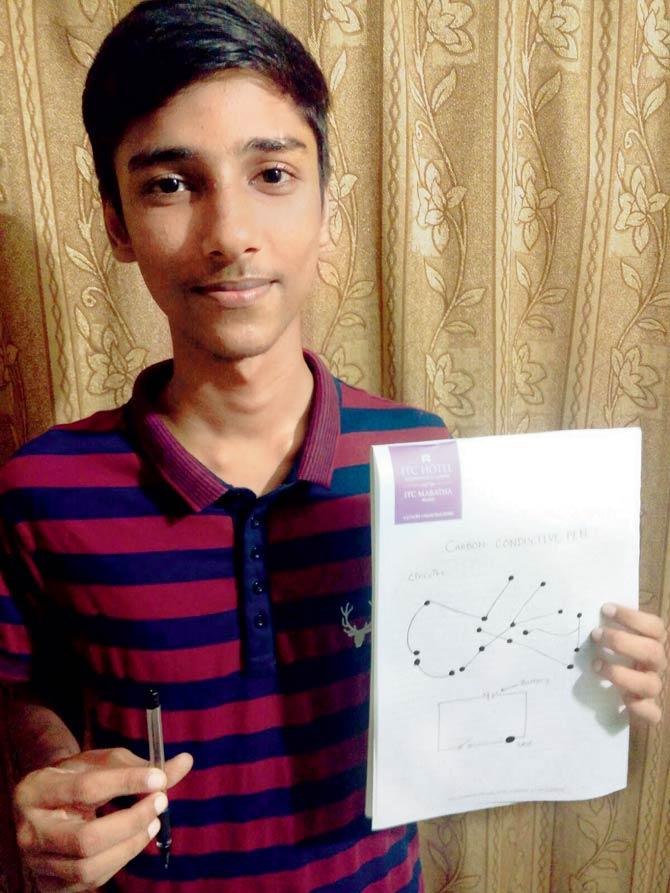
The conductive pen made by Aniket Singh and friends
Starting this Friday at the Somaiya Vidyavihar campus Maker Mela 2015 will see men, women and children from across the country gather under one roof to showcase their talent. The mela, one of the first of its kind in the country, is a platform designed to accelerate the maker movement and create what they call a community of makers.
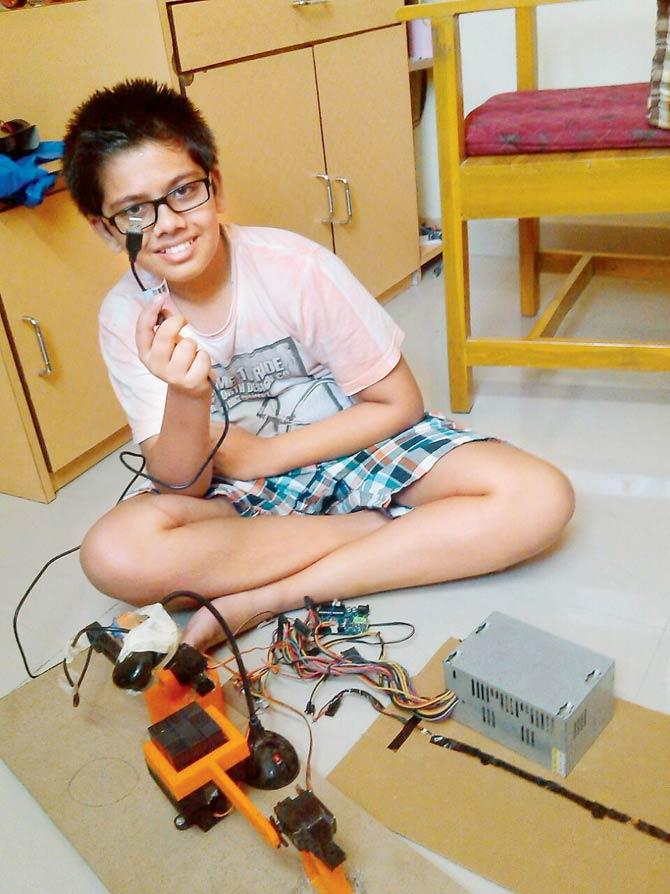
Sarvagnya Purohit, 12, has created a Rubik’s cube solver
Samir Somaiya, President, Somaiya Vidyavihar, says, “Our vision is to catalyze innovation and entrepreneurship in India at the grassroots level. It is when people get an opportunity to share ideas and collaborate that products turn into businesses. Learning and knowledge can only increase when shared.
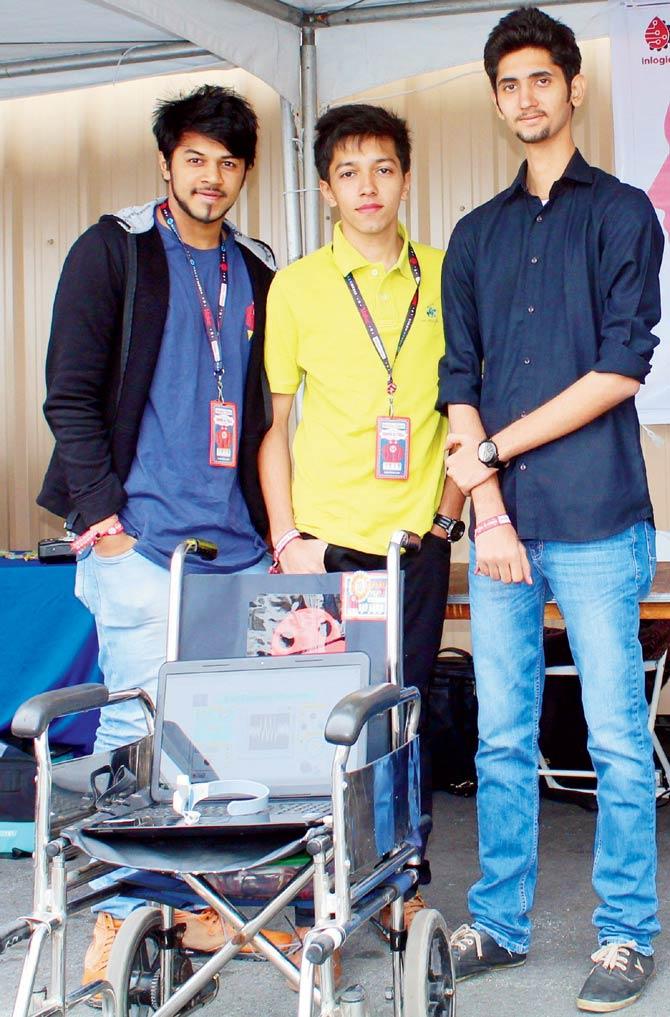
Soham Ganatra (center) and friends with a wheelchair that helps those battling paralysis stay mobile
We are excited to play a role in bringing Indians from across strata and states together to celebrate the joy of learning, exploring and entrepreneurship.” Gaurang Shetty, spokesperson for Maker Mela, says, “Maker Faire is the inspiration for this mela.
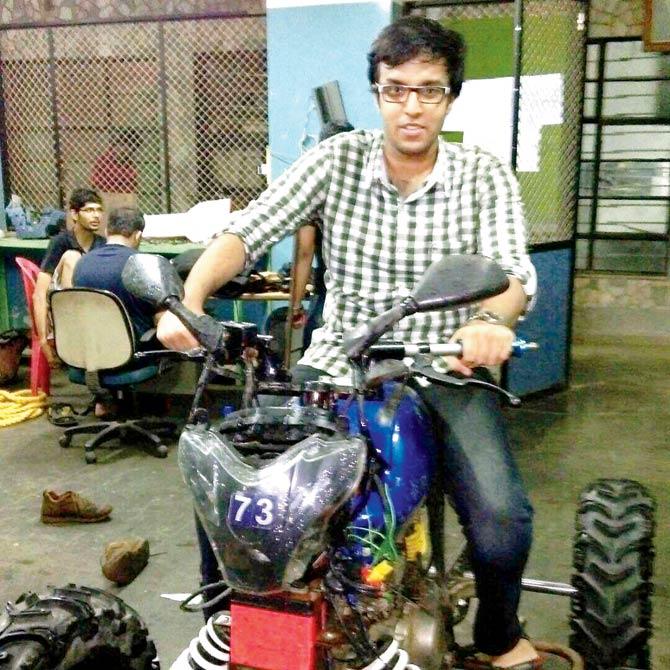
Rohit Mehta and 25 others made this Quad Bike to participate in a race in Harayana
Although the mela is a three-day event, we will be mentoring and grooming the makers for a year. We are hosting 50 workshops and expecting 60,000 attendees.” Among the visitors expected are investors who may be sniffing around for profitable inventions.
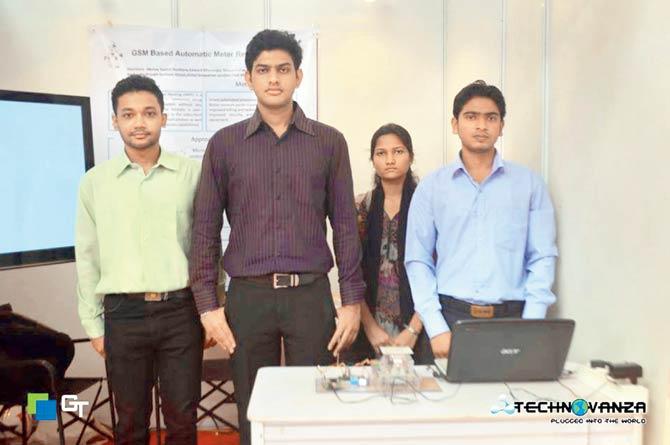
Smit Joshi (second from left) with co-makers and the GSM meter
Minister of science and technology, Dr Harsh Vardhan; Maharashtra state education minister Vinod Tawade and Bollywood actor Kunal Kapoor are on the list of speakers at the Mela. “Google developers will be here too to select commercially viable inventions and help fund them.
We will also incubate ideas, help makers pitch their inventions accompanied by business models, support them physically and virtually to grow.” He believes any individual able to create something is a maker.
“We are looking forward to bringing scientists, engineers, technocrats together with experts, artists and craftsmen to explore how they can work together by combining art, science and technology,” says Shetty. Here are mid-day’s top five inventions and their makers.
Solve the Rubik’s cube
Thane resident Sarvagnya Purohit is just 12. And he has invented a Rubik’s cube solver. One of the youngest participants at the Mela, the class 8 student has mastered the 3x3 cube algorithm and create a machine that can solve the colour cube quiz that’s been baffling those who take up the challenge of solving it.
“This is not my first invention. My mother had bought me a DIY (Do It Yourself) kit once, and with it I made a solar panel I have also created a 3D printer. Watching science-based television and following innovation blogs has helped,” says the student of The AK Joshi English Medium School.
Purohit says he came up with his invention while tinkering during a summer vacation. “Initially, I made it out of candy sticks, but then I upgraded it. I am using plywood and sunmica to make it more robust and durable. Next, I plan to make a 4x4 and 5x5 Rubik’s cube solving machine. Each has a different algorithm, so it is tricky,” he says.
Purohit’s parents are obviously supportive of his scientific temperament, and accompany him to Lamington Road where he shops for raw material.
Control electricity usage
Engineer Smit Joshi’s spiralling electricity bill spurred him to create a GSM-based automatic energy meter reading. “Two years ago, a massive electricity bill I received, made me start work on a customer-utility product to help users decode their electricity bill. This will help people save electricity and deal better with load shedding,” says Joshi.
The Borivali resident is encouraged by Modi’s stress on the need for digitisation. “All you need is a smartphone to help people manage their electricity bills within budget. Even if you are on holiday, this meter can help you calculate electricity being consumed back home.”
Build a circuit with lines
Aniket Singh, a class 11 standard student from LD Sonawane College, Kalyan, and his friends Karthik Singh and Kunal More have developed a conductive ink pen over the last one year.
“The conductive ink pen is a simple looking ball-point pen that allows you to draw and instantly create a fully functioning circuit, instead of soldering or wiring them to a breadboard. We consulted our science teacher and watched YouTube videos for help.
The first pen we made was from silver but it was too expensive. So, we shifted to charcoal. Both materials carry carbon, but the cost difference is huge,” says Singh. The pen was ready just a few days ago. Singh explains, “As science students who plan to study engineering, this invention has helped us comprehend concepts learnt in class. It feels great to have made something.”
Mind reader wheelchair
Soham Ganatra, Priyank Satra and Sunny Modi, all students of Somaiya College of Engineering, have manufactured a wheelchair that is controlled by brain waves. Propelled by a sensor fitted on the chair which is connected to a headset worn by the user, it was born when the friends realised the diabled, one of their close buddies, needed to be mobile.
“The senor notes electric impluses from the brain and is connected to a stand alone device which moves the chair. The chair offers the disabled independence. It moves depending on the user’s brain,” explains Ganatra, who has been working on the model for eight months. “We started work during the last Diwali vacation, and we have turned it into our college engineering project.”
The any-terrain bike
A Quad Bike racing competition in Haryana lead Kurla’s Don Bosco College student Rohit Mehta and 25 friends to build an All Terrain Vehicle. “We worked non-stop on the bike from March to June before we tested it. The designing started in January and we created the bike right in our college campus, working every day from 9 am to 9 pm,” says the fourth year mechanical engineering student.
The bike competition was held this August, with the group making their own bike, working on the mechanical components, pit stop, etc. Mehta says, “It was challenging but a great process which taugh us a lot. We ferried the bike by train to Haryana to participate in the Quad Bike Racing competition.”
 Subscribe today by clicking the link and stay updated with the latest news!" Click here!
Subscribe today by clicking the link and stay updated with the latest news!" Click here!






